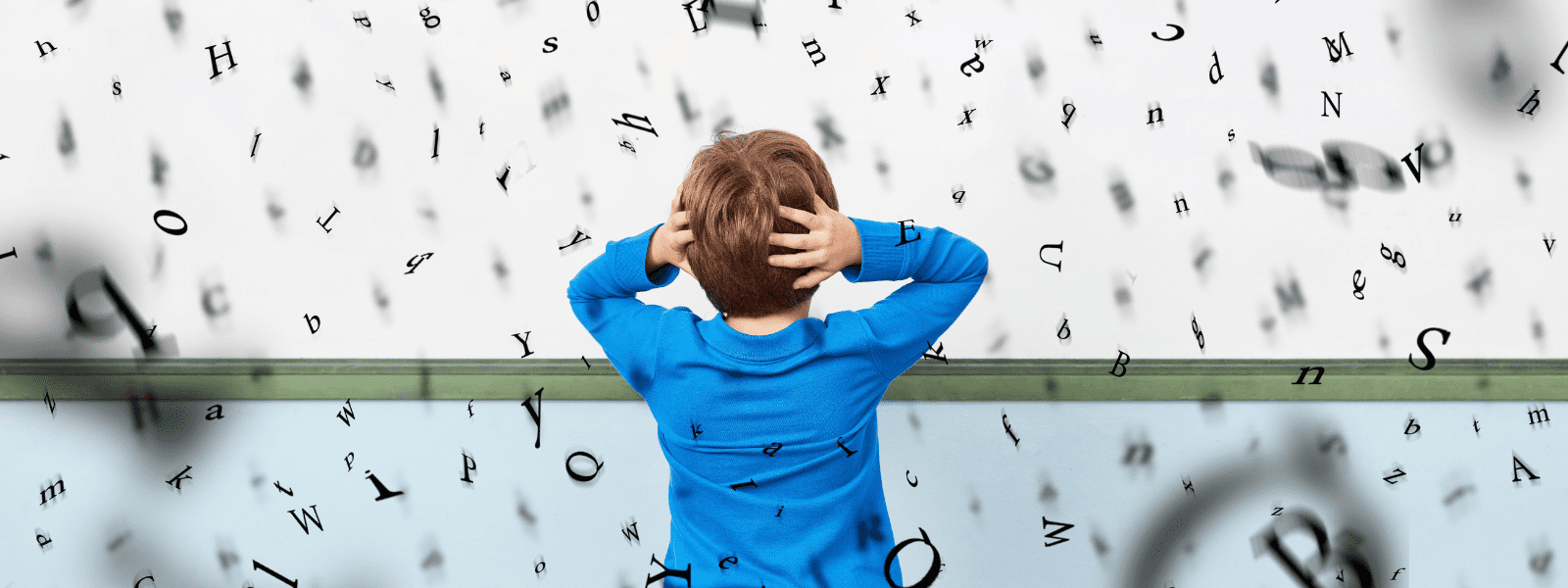Dyslexia: Myths & Signs and How to Read More Confidently
Did you know that dyslexia affects 5-15% of all Americans? That’s somewhere between 14.5-43.5 million people in the U.S. alone. This common diagnosis is often thrown around in conversations among parents when kids reverse letters or struggle with reading, but do you really understand what it is?
What Is Dyslexia Really?
Dyslexia isn’t just letter reversals or seeing jumbled words on a page. It is a specific learning disability that impacts your entire brain’s relationship with language. Often, people with dyslexia struggle to sound out or blend words efficiently – but not because they’re seeing them backwards or out of order. Instead, usually these individuals have a weakness in auditory processing or some other cognitive skill that makes reading harder.
People with dyslexia don’t just struggle with reading. Often, there are accompanying problems with memorizing, verbal self-expression, written language, attention, and other areas of learning as well.
Common Myths About Dyslexic Learners:
Here are some commonly-held beliefs about dyslexia that are not necessarily accurate for most individuals:
- Reading backward and reversing letters is a sign of dyslexia. While most individuals with dyslexia do struggle with written language, they don’t “see” these letters differently, according to research. It’s normal for kids to mix up similar letters. It’s part of learning and not necessarily a sign of dyslexia.
- If my child is dyslexic, I won’t know until they’re in school. There are actually early signs of dyslexia that can lead to a diagnosis as early as age 5. Some of these early warning signs include:
- Trouble with basic skills like rhyming or identifying first/last sounds
- Difficulty sitting still or focusing for any length of time
- Lack of interest in letters or words
- Struggling to remember or recite the alphabet
- A history of slower speech development and commonly muddling words
- Struggling with 2 or more steps in directions
- Often forgetting names of people or things
- Confusion with directions (like up and down) or with identifying patterns
- Dyslexia is caused by a lack of exposure to the written word. This is absolutely untrue. No amount of exposure or reading aloud can prevent dyslexia, as it is a neurological condition that includes differences in the way areas of the brain communicate with each other.
- Dyslexia is a vision problem. Dyslexic learners don’t see differently than mainstream readers. In fact, dyslexia is more an auditory processing issue than anything else, and THIS is the main underlying reason they struggle with reading and language.
True Signs of Dyslexia
So how do we know if a learner is dyslexic? Here are some of the common signs in school-age kids, teens and adults:
- Avoiding activities that involve reading
- Reading well below grade level
- Taking an excessive amount of time on reading and writing tasks
- Difficulty spelling, seeing similarities between words or forming the right word or answers to questions
- Trouble remembering items in a sequence
- Difficulty pronouncing new words
- Struggling to process verbal instructions
- Difficulty reading silently and aloud
- Having trouble putting something in their own words or summarizing information
- Mispronouncing words or coming up with words
- Difficulty understanding jokes or idioms
Brain Training to Improve Reading Skills
While LearningRx is not a treatment of dyslexia, nor do we diagnose the condition officially, our reading training program has been incredibly helpful for thousands of dyslexic learners.
Between 2010 and 2018, over 2,200 students with dyslexia completed our reading training program and experienced amazing results! They grew over 3.7 years in all cognitive skills, but an astounding 5.7 years in auditory processing (the primary skill behind reading struggles).
Whether you have an official dyslexia diagnosis or you just suspect there are reading struggles holding you or your child back, contact us today to learn more about the ways brain training may help.
By addressing the core skill weaknesses that make reading so hard, you can become more confident, fluent, and capable in reading, thinking, remembering, and more!







